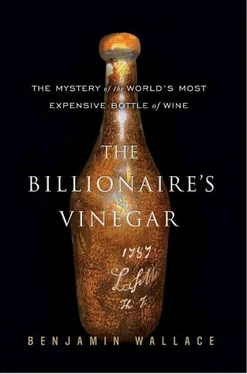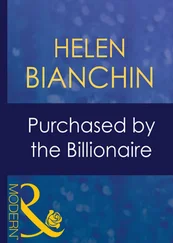Broadbent’s club was Brooks’s, one of the oldest. At the bar upstairs, he ordered a glass of Tio Pepe sherry, one of his preferred tipples. That morning, as on many others, he had begun the day with a buck’s fizz, as the British call a cocktail of Champagne and orange juice. Even in his old age, he exuded a winsome boyishness, and his varied enthusiasms could distract him from the topic at hand. He might be mid-conversation at his ninth-floor riverside flat when suddenly he’d leap toward the window to point out some passing boat on the Thames that he’d never seen before. Or he’d be having lunch in a restaurant when he’d stop, mid-sentence, his attention caught by an attractive young woman, and murmur, “Dishy little Indian.”
Broadbent and his guest repaired to Brooks’s dining room for lunch. Broadbent ordered potted shrimp to start, followed by roasted grouse. “Pink,” he told the waiter, “but not bloody.” He ordered a small carafe of Macon-Lugny, a pleasant white Burgundy, followed by a half-bottle of a delicious blended red from Lebanon called Château Musar. He didn’t need to look at the wine list; he had previously sat on the club’s wine committee.
“Like me,” Broadbent said, returning to the Jefferson bottles, “Hardy is sick of the subject.” He sipped at his Musar. “Very drinkable, don’t you think?” His note on it would have to wait until later; Brooks’s discouraged the mixing of business and pleasure by forbidding papers in the club. Broadbent was fed up with Richard Marston, Koch’s British investigator, who had called him several times. “If they want anything further from me,” Broadbent said, “Mr. Koch himself can call me.” He pronounced Koch like Bach, with a throaty scrape on the final consonants. Broadbent dismissed the inquiries as “malicious.” Jim Elroy was an “FBI bore.”
BILL KOCH WAITED for months to see whether Kip Forbes would join him as a coplaintiff. In the end, although Forbes wanted to, his brothers argued against it, and Koch and Russell Frye decided to go ahead without him. Then the FBI approached Koch, saying they had their own investigation under way and asking him to delay his suit against Rodenstock until they could, in Brad Goldstein’s words, “lure him into the U.S.” Koch demurred. Waiting for the FBI would be “like watching a glacier melt,” Goldstein recalled.
On the last day of August 2006, a Thursday, Koch sued “Hardy Rodenstock, aka Meinhard Goerke,” in federal court in Manhattan. Koch had decided not to sue Christie’s or Farr, in the hope that they would become cooperating witnesses instead. Simultaneously, in federal court in San Francisco, Russell Frye filed suit against a California merchant, the Wine Library, and its owners, brothers Edward and Carl Gelsman. Koch’s complaint laid out his evidence regarding the Jefferson bottles, and also singled out the magnum of 1921 Pétrus that had come from Rodenstock. The complaint noted that 1921 Pétrus had been given a perfect score by Robert Parker, and that the critic had first tasted the wine at the 1995 Rodenstock tasting he attended.
Koch’s complaint mentioned that Russell Frye had been told by the Wine Library that Rodenstock was the source of many of the bottles he believed to be fake (Frye’s complaint likewise cited two fake magnums of 1921 Pétrus). Describing Koch as “one of Rodenstock’s many victims,” the complaint stated: “[Rodenstock] is charming and debonair. He is also a con artist.”
CHAPTER 20

THE FINISH
FOR A MAN SEEKING TO LEAVE HIS PAST BEHIND, Germany is a hospitable place. Although it has less than a third as many people as the United States and is smaller than Montana, privacy laws there make it almost impossible to trace a person who is set on reinventing himself.
Nonetheless, with Koch’s fat bankroll and well-connected team of law-enforcement veterans, the investigation yielded tantalizing glimpses of Rodenstock’s past. Besides learning of Rodenstock’s name change, which occurred in the mid-1970s, they gleaned other facts: he was born not in Essen but in Marienwerder, a village in northern Poland that was now named Kwidzyn. His father, Alfred Görke, had been stationed there with the German army and it was there that he met twenty-year-old Lydia Ristau, whom he married in 1940. Meinhard was born the next year.
Alfred, working on the railroad supply chain for the eastern front, had to stay in Marienwerder, while Lydia fled west, by horse and handcart, with her infant son. They settled first in a refugee camp in Hanover, then traveled by bicycle to Gelsenkirchen, a small town in northwestern Germany.
In 1945, Alfred rejoined the family and went to work for the civilian railroad in Essen. Though his son would later boast that Alfred “ran” the regional railway, he spent his career as a general clerk. Meinhard attended the Alma high school, where he was an unexceptional student, and then a technical school, where he studied surveying. He married young, to a hairdresser named Gisela, who gave him two sons, Törsten and Oliver. Meinhard never rose higher than “apprentice land surveyor” for the regional railway, and, contrary to his later assertions, never held teaching positions or published academic papers. He also had a younger brother named Gisbert, who lived near Essen, and whom the investigator, with cutting thoroughness, reported to be “a very small-sized man.”
Curiously, though none of Rodenstock’s wine friends knew of the brother, Gisbert appeared to share a passion for the grape. In 2000, without mentioning their relationship, “Gisbert Görke” had written to Welt am Sonntag to applaud a pair of articles penned by Hardy Rodenstock. Around the same time, the Hamburg-based food magazine Der Feinschmecker received several letters from Gisbert Görke, all praising Rodenstock and his friends and attacking the magazine’s independent-minded editor, Madeleine Jakits. And in 2004, Gisbert Görke had written a letter to the magazine Vinum in response to an item about how to tell whether a 1928 Latour was real or fake.
Koch’s investigators interviewed the Görke brothers’ mother, as well as Rodenstock’s old girlfriend Tina York. York, whose relationship with Rodenstock had lasted for close to a decade, revealed that Rodenstock had told her he was a member of the well-known Rodenstock clan, that he had kept the fact that he had two sons hidden from her, and that once when she had put a bowl of potato salad in his wine cellar to chill it Rodenstock “just flipped out.” And the investigators, led by Secret Squirrel, as Brad Goldstein had taken to calling the stealthy and ubiquitous Elroy, were still sleuthing at full speed.
“You know that movie Catch Me If You Can ?” Goldstein said. “That’s what I want. I want the lab where he makes the bottles. I want the printing press.”
Goldstein soon came close to getting what he wanted. In October, two months after Koch filed suit, his office received an e-mail from a German financial planner named Andreas Klein. Klein’s wife’s family had been Helga Lehner’s landlords since 1968 and Hardy Rodenstock’s since he married and moved in with Lehner in 1991. The house, on Ostpreussenstrasse in Munich, was a small, conspicuously modern twin with bright orange siding; the Rodenstocks lived in one half and, starting in 1997, Klein and his wife lived in the other, sharing a thin wall with their neighbors.
The Rodenstocks weren’t home much—they moved freely among their apartments in Monte Carlo, Bordeaux, Kitzbühel, and Marbella—and over the years the Kleins’ contact with them was polite but limited. Andreas Klein found Rodenstock bizarre. When they spoke, Rodenstock would invariably mention, apropos of nothing, “my friend” Franz Beckenbauer or Gerhard Schröder or Wolfgang Porsche or Mick Flick (the Mercedes-Benz heir). The name-dropping was so insistent that Klein was left with the strong impression that Rodenstock lacked self-confidence.
Читать дальше













